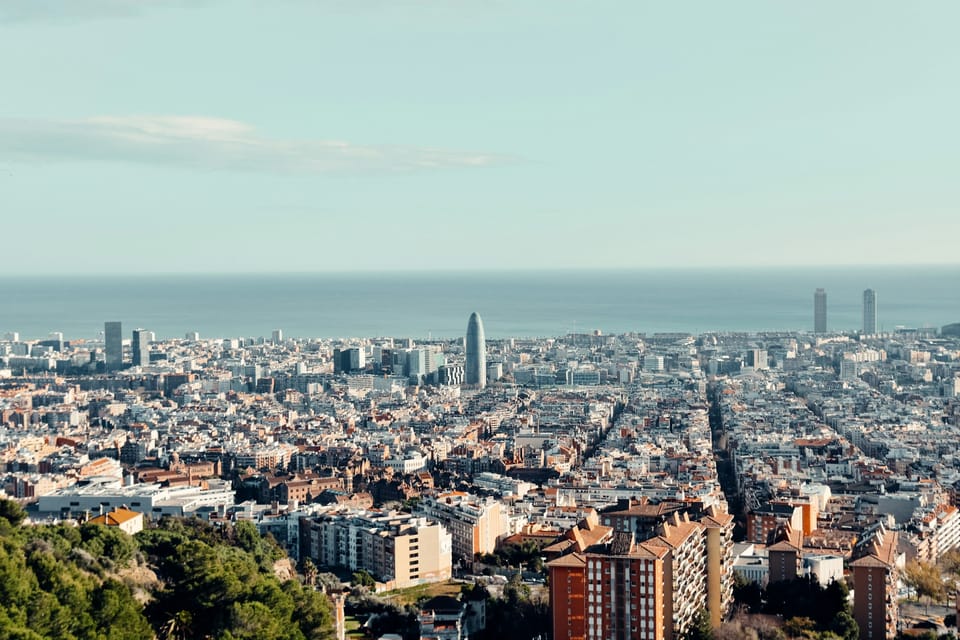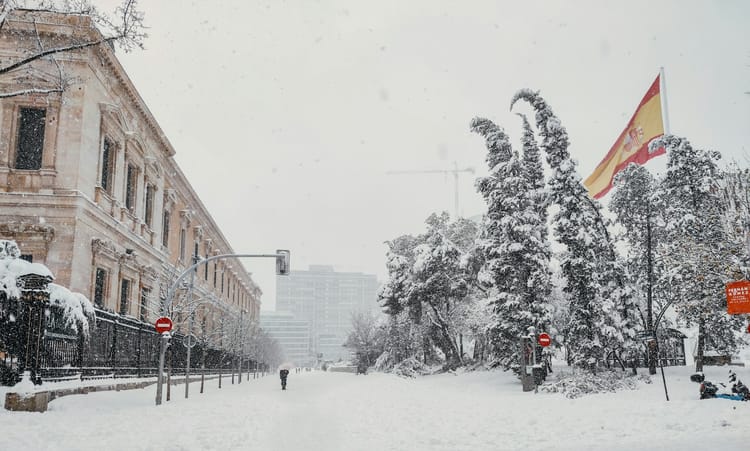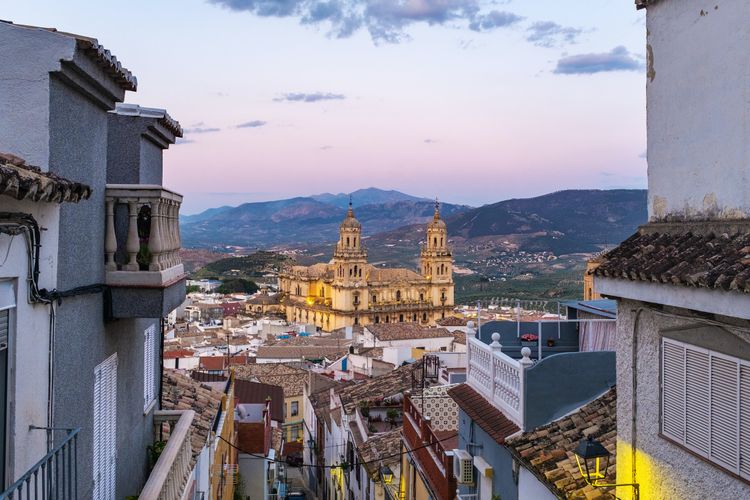Does It Snow in Barcelona?

Barcelona, renowned for its mild Mediterranean climate, captures the imagination with its picturesque architecture and vibrant culture. Contrary to its usual sunny disposition, snow in the city is a noteworthy phenomenon. While not a common occurrence, the city has witnessed sporadic snowfalls.
Such rare events tend to create a brief but magical transformation of the cityscape, leaving both residents and visitors eager to glimpse the unusual sight of Barcelona's famous landmarks blanketed in snow. These instances of snowfall, however, are fleeting, as the coastal city's temperatures typically sway towards the mild side, causing any snow that does fall to melt swiftly.
Given Barcelona's location and climatic tendencies, the occurrences of snow are few and far between, with historical weather data indicating snowfall being a rare exception rather than the norm.

In reality, the city has experienced significant snowfall on a handful of memorable occasions throughout the years, often separated by several years or even decades.
The snow of 1962, for instance, is still referred to by locals as 'the snow of the century'. Nevertheless, such infrequent snow events have captured the city's attention and form a part of its modern lore.
Key Takeaways
- Snow in Barcelona is an unusual event, aligning with the city's mild Mediterranean climate.
- Historical instances of snow have been rare, with significant events remembered by locals years later.
- The city's geographic position makes persistent snowfall unlikely, though climate variations can affect weather patterns.
Climate Patterns in Barcelona
Barcelona enjoys a Mediterranean climate, characterized by mild, wet winters and hot, dry summers. Winter temperatures typically hover around 10°C (50°F), creating an environment unsuitable for frequent snowfall. Due to its location on the northeast coast of the Iberian Peninsula, Barcelona's weather is greatly influenced by its proximity to the sea.
The Collserola mountain range provides a level of protection against certain weather patterns, contributing to the generally mild conditions in the area. Temperatures rarely dip below 5°C (41°F) in the coldest months, and while rain is more common during winter, snow is a rarity in this coastal city. Certain climatic conditions, such as the Azores High, can lead to mild and sunny winter days, with highs reaching around 15°C (59°F), whereas the Atlantic fronts can bring clouds and rain.
The city's precipitation patterns are as follows:
- Average rainfall: More common in winter
- Snow: Rare occasions, mostly restricted to the surrounding mountains
Barcelona's overall climate can be summarized through a few key points:
- Dominated by a Mediterranean climate.
- Winters are mild with occasional rain.
- Snowfall in the city is uncommon.
- The surrounding topography influences weather patterns, maintaining milder temperatures.
Residents and visitors alike can generally expect a comfortable climate year-round, with little need for concern about snowy conditions.
Historical Weather Data
Barcelona, with its Mediterranean climate, typically experiences mild winters. However, it does receive occasional snowfall. Historical weather observations indicate that snow in Barcelona is a rare event, with the city's coastal location contributing to warmer winter temperatures.
On the rare occasions that it does snow, the snowfall does not usually persist for long. Here are a few significant historical events:
- January 14 and 15, 1914: More than 20 centimeters of snow blanketed Barcelona during these two days, marking the first significant snowfall of the 20th century.
- December 1962: A notable snow event occurred on Christmas Eve, with the city waking up to a covering of snow that persisted through the holiday.
Data from weather stations, including Barcelona Airport, provides records of temperatures and precipitation, allowing for an analysis of climate trends over time.
The observed historical climate data also show variations in temperature throughout the seasons, with temperatures often reaching highs around 57 °F even during the winter months. It is uncommon for temperatures to drop to levels conducive to snow for an extended period, resulting in the city's infrequent snowfalls.
While Barcelona's winters consist mostly of mild temperatures and occasional rainfall, the historical data shows that the city is capable of experiencing infrequent, picturesque snowfall.
Probability of Snowfall
In Barcelona, snow is a rare occurrence due to its Mediterranean coastal climate. The city enjoys mild winters with temperatures typically staying above 5°C (41°F). Historically, significant snow events are atypical, making snowfall in the urban areas an infrequent spectacle. Barcelona's snow records indicate light snowfall events can occur but primarily just on the surrounding mountains.
The likelihood of snow during Barcelona’s winter months is very low, with occasional shallow levels of snow possible. During February 2018, an unusual weather pattern known as "The Beast from the East" brought a brief dusting of snow to the city, emphasizing the rarity of such events. Moreover, in March 2010, Barcelona experienced up to 5 centimeters of snow, which lasted for a day. This indicates that while snow in Barcelona is not impossible, it is by no means a common experience.
The last substantial snowfall the city faced was in Christmas 1962—considered one of the heaviest snowfalls since 1887. This historical event is an exception rather than a norm. It's recommended for visitors to anticipate rain rather than snow during the colder months and to carry an umbrella rather than expect a need for snow boots.
| Month | Average Snowfall |
|---|---|
| January | Approximately 1mm |
| October | Approximately 1mm |
Visitors and residents alike should note that, due to its scarce nature, snow may cause disruptions when it does occur, as the city's infrastructure is not designed for significant snow events.
Barcelona Snowfall Records
Barcelona has experienced several notable snowfalls over the years, despite snow being a rare event in this Mediterranean city.
In recent history, the last significant snowfall in Barcelona occurred in February 2018. Referred to as the "Beast from the East", this weather phenomenon caused widespread snowfall across various parts of Europe, including a substantial deposit in Barcelona. Further details about this event can be found at Get the (Winter) Facts!
Going further back, March 8, 2010, stands out as a day when Barcelona saw its most considerable snowfall since 1962. The whole city was draped in white, with the snowfall being especially thick in the upper parts of the city, like the zona alta. Even the coastal areas were covered, leaving a rare and picturesque scene of the typically sunny beaches under snow. The impact of this event is recorded at Does it ever Snow in Barcelona?
One cannot discuss the snowfall records of Barcelona without mentioning December 25, 1962. This Christmas brought the heaviest recorded snowfall to the city since 1887, disrupting the daily life and becoming a historical reference point for snow events in Barcelona.
The general pattern indicates that substantial snowfall in Barcelona occurs approximately once every decade. This cadence makes such snow events significant and newsworthy within the city's history, as outlined at Americans in Barcelona. The rarity of snow in Barcelona turns each snowfall into a memorable occurrence for its residents, who are accustomed to the city's mild winters.
Impact of Climate Change on Barcelona Weather
Climate change projections indicate varied and significant impacts on the weather in Barcelona. Two scenarios outlined by the IPCC suggest disparate futures based on global actions towards reducing greenhouse gas emissions. In a high-commitment scenario, measures to halt emissions may stabilize temperatures. Conversely, without strong global commitment, Barcelona could experience considerable climate alterations.
Weather patterns are expected to shift due to climate change, influencing not only temperatures but also precipitation and extreme weather events. Barcelona faces specific vulnerabilities because of its urban environment and location. Experts postulate an increase in the frequency and intensity of heatwaves, which would lead to hotter summers.
Winter seasons may change, with snow becoming a rarer occurrence. As highlighted in a report on HuffPost, unusual weather—like snowfall at sea level—is attributable to complex climate patterns. Nonetheless, future snowfall in Barcelona may further decline as global temperatures rise.
Climate change impacts biodiversity within the city, threatening both flora and fauna. Nature's response to changing weather patterns is an area of active study, as seen through research conducted by local Barcelona agencies. These studies investigate the anticipated climatic changes and their potential effects on the regional ecosystem.
Barcelona's local authority has adopted a climate emergency plan, focusing on mitigation, adaptation, and climate justice, acknowledging that climate change endangers the health and quality of life of its residents. The city aims to undergo a comprehensive transformation to confront climate challenges head-on.
Comparison with Nearby Regions
In the broader context of the Iberian Peninsula, Barcelona's snowfall is arguably minimal. To the north, the Pyrenees mountains are a stark contrast, as they receive heavy snowfall annually. Ski resorts in the Pyrenees, like Andorra and parts of northern Catalonia, typically have an extended snow season lasting several months.
Moving southwest, the city of Madrid experiences snow more frequently than Barcelona, although it's still considered rare compared to other European capitals. Madrid's continental climate brings colder winters, hence a higher likelihood of snow.
| Region | Average Annual Snowfall | Climate Type |
|---|---|---|
| Barcelona | Scanty | Mediterranean |
| Pyrenees | Heavy | Alpine |
| Madrid | Moderate | Continental |
The Valencia region, to the south, shares a similar Mediterranean climate with Barcelona, resulting in very infrequent snow. In contrast, the central plateau of Spain, known as the Meseta Central, sees more substantial snow, especially at higher elevations.
One should also consider the microclimates within Barcelona itself, where certain districts at higher altitudes might see brief snowfall when the rest of the city remains clear. However, even in these areas, accumulation is usually light and short-lived.
In essence, Barcelona's snowfall is a rarity, especially when juxtaposed with the more mountainous or inland regions of the Iberian Peninsula.
Frequently Asked Questions
Barcelona's winter climate is generally mild, and snow is a rare occurrence in the city. Below are some specific questions and answers that can guide expectations for travelers interested in the region's winter weather patterns.
What is the likelihood of experiencing snow in Barcelona during the winter months?
The likelihood of experiencing snow in Barcelona is low, as it is a rare event that occurs approximately once every 10 years. The city's winter climate typically does not favor snow accumulation.
What are the typical weather conditions in Barcelona during December?
During December, Barcelona usually experiences mild weather, with temperatures often staying above 5°C (41°F). Rain is more common than snow during this time, and it is advisable for visitors to carry an umbrella.
Can you expect snowfall in Madrid to be similar to that of Barcelona?
Snowfall in Madrid cannot be directly compared to that of Barcelona, as Madrid has a different climate with a higher elevation, which makes it more susceptible to snow during winter months.
Was there any notable snowfall in Barcelona in the recent years?
There have not been significant snowfalls in Barcelona in recent years, with the exception of events referred to as historical, like the one on December 25, 1962, when the city experienced nearly half a meter of snow.





